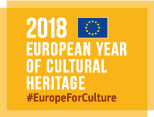PLUGGY - Crowd sourced social platform for the promotion of local cultural heritage
Challenge: WHY the innovation has been developed? What problem is addressed and why has not been not solved before?
PLUGGY is an EU funded research project that aims to develop an innovative social platform and a suite of smartphone tools that will enable individuals, community groups, industry, museums and countries as a whole to bring out, document and share their heritage online. PLUGGY addresses the need of the society to be actively involved in cultural heritage activities. Currently there is a shortcoming in ICT tools for enabling people to bring out their local cultural heritage. The existing applications and repositories target at a more professional audience and thus do not create communities or greater connections among people. Social platforms may offer potential to build networks, but they have not been exploited with regards to cultural heritage. PLUGGY aims to bridge this gap by providing the tools that allow users to share their local knowledge and experience, together with the contribution of cultural institutions, building extensive networks.
Solution: WHAT the solution is about? HOW it goes beyond the state of the art?
PLUGGY will support citizens in shaping cultural heritage and being shaped by it. PLUGGY frames its objectives around the Faro Convention, in line with new social paradigms which declare heritage as an asset and a responsibility for all, aiming to encompass greater democratic participative actions with concern for the local and the everyday. PLUGGY will develop two interlinked sets of software applications: a) The PLUGGY software platform, which will facilitate a continuing process for creating, modifying and safeguarding heritage where citizens will be ‘prosumers’ and maintainers of cultural activities. It will be web-based, easily accessed and will allow the development of shared identity and differentiation. Social Platform’s users will curate stories using the Curatorial Tool. Content will be either uploaded by end-users or derived from digital collections (e.g., museums, archives, cultural institutions), allowing users to create links between seemingly unrelated facts, events, people and digitized collections, leading to new approaches of presenting cultural resources, and new ways of experiencing them. PLUGGY will provide the necessary architecture and the technologies for
End-users and examples of uses: WHO will beneficiate/ is beneficiating from the solution? WHERE and HOW the solution has been adopted? How will impact people or end-users? Add as more as possible examples of market and society uptakes
PLUGGY enables people to connect, learn, grow, think, actively participate in cultural heritage activities and share ideas. It transfers the responsibility towards cultural heritage from the exclusive domain of experts to individuals and heritage communities, giving them the opportunity to expose and transmit their values to anyone sharing their concerns, visions and interests. Through PLUGGY assets any sensitized individual will be able to enrich the cultural heritage of his/her focal point through the uploading of material (audio/video/images/text/3D models etc..) and the use of this material and the material already included in the platform in order to create personalized, interactive, to-the-point stories and share them online.
Future possibilities: Future market perspectives when the innovation will be fully available or in use
Both the PLUGGY software platform and the 4 applications (Augmented reality, Geolocation, 3D Sonic Narratives and Collaborative Games) will be released as technological tools made freely available under open source licenses and, as such, distributed through appropriate channels and portals relevant for the open source software community. The PLUGGY software platform will be released together with comprehensive documentation, including tutorials and howtos. The applications, released as open source programs, will enable developers to use them as practical examples of how to build software drawing upon the PLUGGY platform. The use of the PLUGGY platform and of the related applications should remain free for any external organization or developer to use and modify them and to further build on them. This means that the best licensing model should preferably contain a so-called ‘share-alike’ clause. The PLUGGY platform should also allow any external organization or developer to create non-commercial and/or commercial applications by retaining (in whole or in part) their copyright in the creative works and information embodied into their derivative applications.
Media coverage
https://www.youtube.com/watch?v=VVfFpTeKqj0
References for more information (eg. website, social media)
Contacts:
Nikos Frangakis (nikos.frangakis@iccs.gr)
Application sectors:
- Historical sites
- Cultural Tangible and intangible landscapes
- Heritage-led urban regeneration and adaptive reuse
- Heritage communities and participatory approach
- Enabling digital technologies for CH
- Intercultural dialogue
Objectives:
- Consumers’ awareness and information, trust building
- Regional/Local development
RRI Dimensions:
- Public Engagement
- Governance
Communities:
- Heritage at risk
- Shared management of cultural heritage
- Advanced future technologies for heritage and arts

